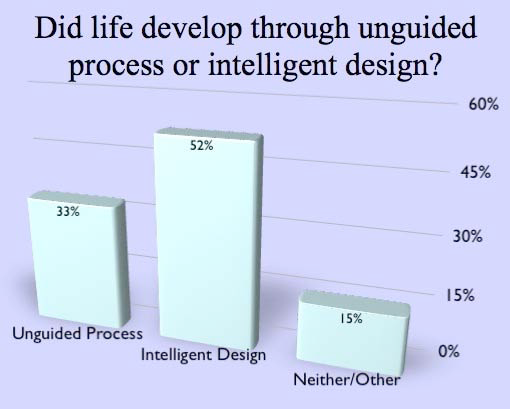Post Author: Bill Pratt
Dr. Philip Skell (now deceased), in an article posted on Forbes.com, says “no.” Skell correctly separates the study of origin science from experimental sciences in the world of biology. These are two distinct realms which Darwinists have become completely blind to.
Skell writes that Darwinists “overstate both the evidence for Darwin’s theory of historical biology and the benefits of Darwin’s theory to the actual practice of experimental science.”
Experimental science, in biology, has “dramatically increased our understanding of the intricate workings within living organisms that account for their survival, showing how they continue to function despite the myriad assaults on them from their environments.”
These advances, however, have little or nothing to do with explanations of Darwinian origins. They “are not due to studies of an organism’s ancestors that are recovered from fossil deposits.” The study of fossils “cannot reveal the details that made these amazing living organisms function.” Skell summarizes the point:
Examining the major advances in biological knowledge, one fails to find any real connection between biological history and the experimental designs that have produced today’s cornucopia of knowledge of how the great variety of living organisms perform their functions. It is our knowledge of how these organisms actually operate, not speculations about how they may have arisen millions of years ago, that is essential to doctors, veterinarians, farmers and other practitioners of biological science.
Darwinian evolution, as a study of the origins of species, cannot make specific predictions about the future of any species. The theory can only tell us that species will pass on helpful genetic traits which further survival. Ask a Darwinist to tell you in which direction an animal or plant will evolve, and they are rendered speechless.
No matter how a plant or animal changes in the future, a Darwinist will always claim that it is evidence for Darwinian evolution. There is no change in biological organisms that could ever falsify Darwinism, because the claim will always be made that whatever change occurs must have furthered survival fitness. But the truth is that the theory cannot make useful predictions. Skell notes this failure of Darwinism:
For instance, we cannot rely upon ruminations about the fossil record to lead us to a prediction of the evolution of the ambient flu virus so that we can prepare the vaccine today for next year’s more virulent strain. That would be like depending upon our knowledge of ancient Hittite economics to understand 21st-century economics.
Skell argues that the fantastic findings of the 20th century owe nothing to Darwinism: discovery of penicillin, discovery of the structure of the double helix, the characterization of the ribosome, and the mapping of genomes, to name a few. Skell goes so far as to say that “studying biohistory is, at best, an entertaining distraction from the goals of a working biologist.” He cites examples from his own professional career where he has discussed these very issues with experimental biologists, who agree.
One must be careful in taking Skell’s point too far, however. It is true that in the field of biology, the importance of the Darwinian theory has been vastly oversold to the public, who are told that all of biology will collapse if we fail to accept Darwinism. Nothing could be further from the truth.
The study of origins, though, is important in determining the way a biologist approaches an experimental study. If he believed that an organism is undesigned and produced through chance and selection, he may make assumptions that significant portions of the organism may be “junk” or useless.
This is exactly what happened when biologists labeled portions of DNA, “junk” DNA. They could not initally find a function for it, so they figured it must be a useless pile of genetic material left over from long years of evolution. Today, we know that “junk” DNA is not junk at all, and it does have purposes (e.g., genetic switching). The acceptance of the “truths” of Darwinism delayed these findings because scientists, for the most part, weren’t interested in studying something their colleagues relegated to evolutionary garbage.
On the other hand, if the biologist believed that DNA is designed, he would be far less inclined to draw such a conclusion, and, in fact, proceed with great effort to discover the designed function of all DNA. In this sense, biologists’ beliefs about origins do matter.
Even though the debates over the origins of biological life will not ultimately derail the methods of experimental biology, they are still important. After all, we would all like to know the truth about what happened millions years ago in the earth’s history. Unfortunately, we may never know for sure, and as Dr. Skell correctly argues, the march of experimental biology will continue.
